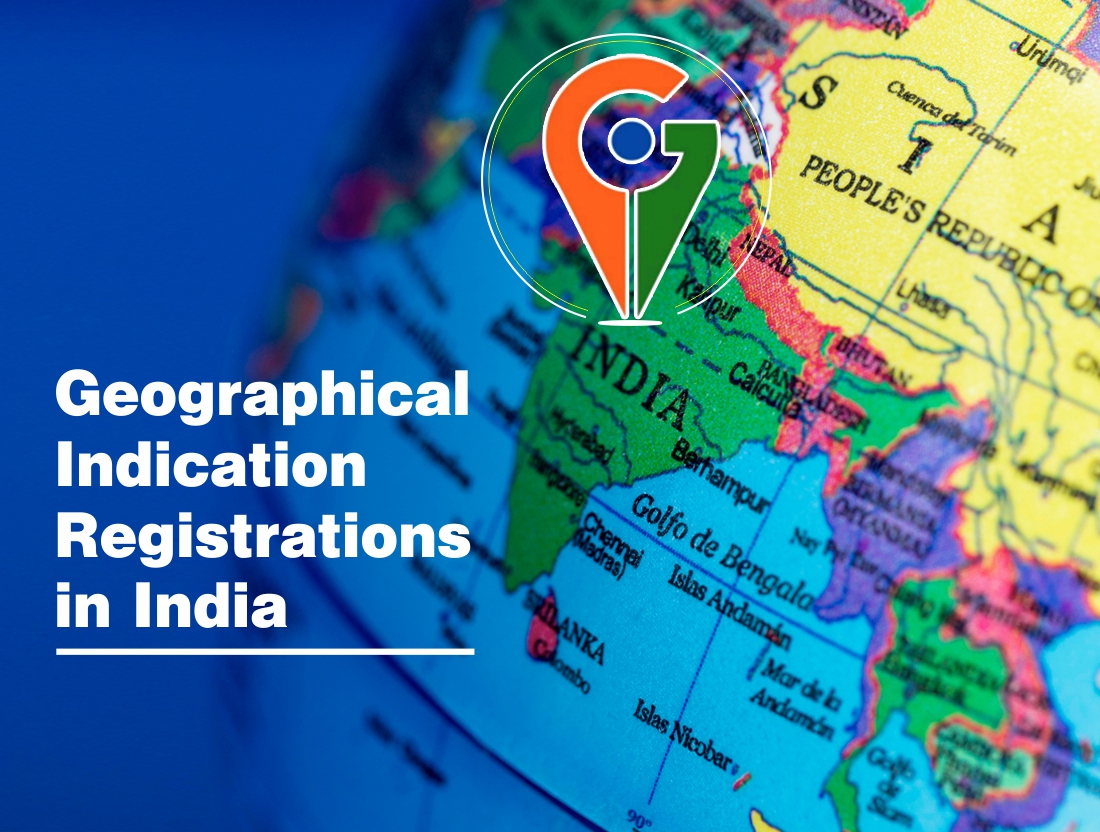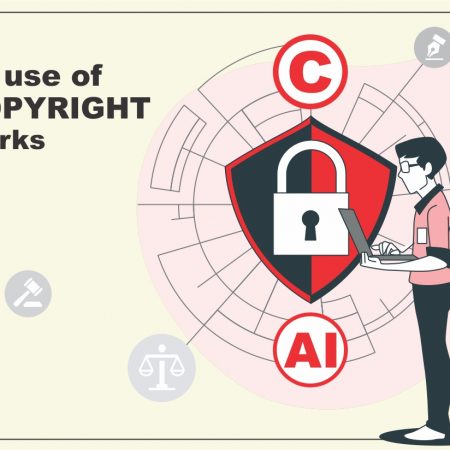GEOGRAPHICAL INDICATION REGISTRATIONS IN INDIA
Geographical Indication (GI) is a form of intellectual property right that vests in the goods originating in a territory, region or a locality wherein the goods depict certain characteristics, reputation or quality attributable to geographical origin. GI registration or GI Tag functions as a source identifying goods as originating in a particular territory or a region or locality and they also indicate certain qualities that are unique to goods originating from a particular geography with which consumers can easily identify. Registration of GI is beneficial as it enables the owner to secure timely protection against infringement as well as prevent unauthorized use by third parties. It has the potential to boost exports and promote economic prosperity of the concerned region as well as producers. The registration of a GI is valid for ten years in India and the same can be renewed thereafter. Protection of GI in India is governed by The Geographical Indications of Goods (Registration & Protection) Act,1999. Till date a total of 301 GI tags have been registered within India. Few popular names include- Darjeeling Tea, Mysore Silk, Chanderi Fabric, Madhubani Painting, Kashmir Pashmina, Feni, Bikaneri Bhujia, Champagne, Phulkari, Scotch Whiskey, Mithila Makhana, Basmati. Knowledgentuia Consultants which is the best law firm in India is equipped to handle all queries with respect to GI filings and registrations.
REGISTERED PROPRIETOR FOR GEOGRAPHICAL INDICATION IN INDIA
Any association of persons, producers, organization or authority established by law are eligible to be registered proprietors of GI. What is crucial is that applicant must represent the interest of producers. Producers usually belong to three kinds of categories such as those of agricultural goods including their production, processing, trading or dealing; Natural goods including their exploiting trading or dealing and handicrafts or industrial goods including their manufacturing, trading or dealing.
CRITERIA FOR NON REGISTRATBILITY
As per the Indian laws, any GI will not be registrable if it:-
- Is likely to deceive or cause confusion
- Use is contrary to any law for the time being in force
- Comprises of obscene matter
- Comprises of matter that is likely to hurt religious sentiments
- Is disentitled to protection in court
- Is a generic name
- False representation of goods belonging to a certain territory
GI REGISTRATION PROCESS IN INDIA
- FILING OF APPLICATION
The first step is to check whether the GI falls within the ambit of definition of GI as prescribed by law. The applicant must have an address of service in India and needs to clearly represent the interest of producers and an affidavit with this regard needs to be filed with the concerned authorities. The application needs to be made in triplicate, accompanied by a statement of case and three certified copies of map of region to which GI relates, elaborate upon details of special characteristics. - EXAMINATION
After filing, the examiner will scrutinize the application for any deficiencies and the statement of case is assesses by a group of experts. After ascertaining of correctness of particulars, the examination report will be issued. - SHOW CAUSE NOTICE
In case of objection, the Registrar will communicate the same. The objections have to be responded within a statutory period of two months and the registrar has a power to withdraw the application as well after giving the applicant, an opportunity to be heard. - PUBLICATION IN GEOGRAPHICAL INDICATION JOURNAL
Every application is published in the journal within three months of acceptance. - OPPOSITION TO REGISTRATION
Opposition can be filed by any person and the registrar will then supply the copy of the notice of the same to the applicant. The applicant has a statutory limit of two months to file a reply and counter statement to the opposition. Non filing of reply shall be deemed as abandonment of application. In cases where the counter statement has been filed, the registrar shall supply the copy of the same to the opposite party. Thereafter both parties will be leading evidence by way of affidavit and be given a chance to be heard - REGISTRATION
Once the application has been accepted the date of filing will be treated as date of registration and a certificate shall be issued to the applicant from the registrar with a seal of Geographical Indications Registry. - RENEWAL
A GI can be renewed after an interval of ten years by paying a prescribed amount of fees.
INFRINGEMENT OF GEOGRAPHICAL INDICATION
For infringement of a registered GI, courts in India have been liberal enough to grant various reliefs in the form of Civil remedies such as Injunction which may be either interim injunction or permanent injunction ,Damages or accounts of profits and the delivery-up of the infringing labels and indications for destruction or forfeiture of goods that bear false representation of an existing G.I.
Criminal remedies too have been awarded by courts from time to time in cases such as Falsifying and falsely applying geographical indications to goods, Selling goods to which false geographical indications is applied, Falsely representing a geographical indication as registered, Improperly describing a place of business as connected with the geographical indication’s registry and Falsification of entries in the registry.
CASE STUDIES
- SCOTCH WHISKY ASSOCIATION V. PRAVARA SAHAKAR SHAKAR KARKHANA LTD, AIR 1992 BOM 294
This is a classic case where Indian judiciary extended protection to registered and bonafide owners of GI. In this case, the plaintiff Scotch Whisky Association, initiated a passing off action against the defendant who is a producer of various Indian whisky brands. The Bombay High Court held that plaintiff had sufficient interest to restrain the defendant’s passing off of Indian Whisky brand to prevent damage to Scotch whisky’s reputation and goodwill. The defendant passed their product off as a blended scotch whisky which they were not in reality. The court granted temporary injunction and prohibited the defendant from advertising or offering for sale or distribution of whisky, which is not Scotch whisky in any territory. - CASE OF KOLHAPURI CHAPPALS
In the year 2019, (GI) tag was granted for for Kolhapuris, the ethnic leather chappal that belongs to Kolhapur, Sangli, Solapur and Satara districts of Maharashtra and Belgaum, Dharwad, Bagalkot and Bijapur districts of Karnataka. There was a joint bid for GI tag of Kolhapuri Chappals by the Sant Rohidas Leather Industries & Charmakar Development Corporation Limited of Maharashtra (LIDCOM) and the Dr. Babu Jagjeevan Ram Leather Industries Development Corporation of Karnataka (LIDKAR) in 2009, which fructified in 2018 into GI tag being granted in favor of the artisans of the two states. The reason for granting the GI for Kolhapuri Chappals to two states and 8 districts within them was because of the large demand for Kolhapuris and the reduction of supply of leather in Maharashtra. The second problem was the change of taste amongst the youth in India and across the globe. Finally, the last reason was the rise in competition from Chinese market.
CONCLUSION
At Knowledgentia, we handle the entire ambit of registration and enforcement of GI. We have earned a name as one of the most client focused firm providing global IPR protection. We are your one-stop solution for all kinds of legal, compliance and supplemental matters concerning GI in India. In case of any query regarding this matter you may email us at info@knowledgentia.com or visit our website –https://knowledgentia.com/.








